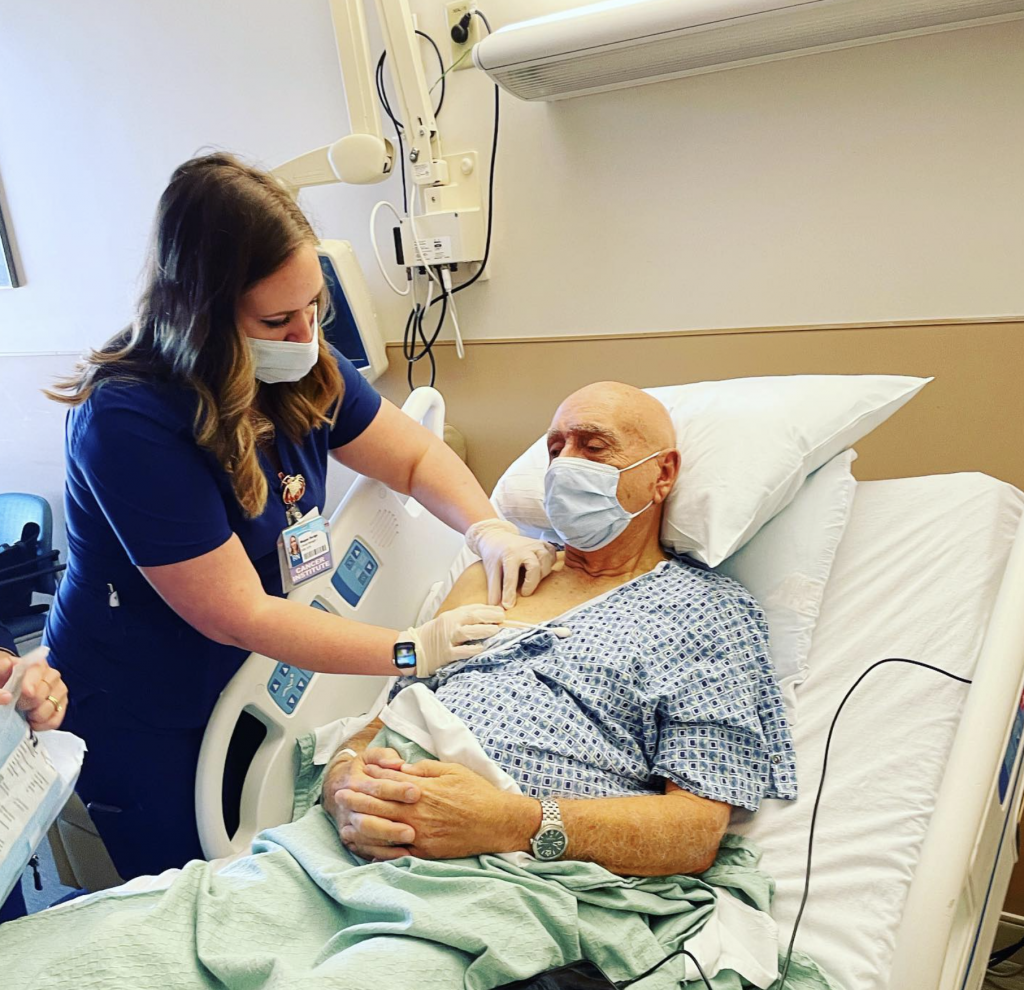Dick Vitale is Cancer-Free!
- For beloved sportscaster Dick Vitale, the only thing better than a March Madness win is hearing your doctor tell you that you're cancer-free.
- Vitale, 82, shared the news of his lymphoma diagnosis in October 2021, just two months after revealing his battle with melanoma, a form of skin cancer. He shared an update on Twitter late Tuesday evening letting fans know he’s been deemed cancer-free following chemotherapy treatments.
- Lymphoma is a cancer of the immune system that affects infection-fighting cells called lymphocytes. And there are more than 40 different types of lymphoma. It should be noted that the type of lymphoma Vitale was diagnosed with remains unclear.
And that's exactly what happened to Vitale this week. He shared an update on Twitter late Tuesday evening, writing: "For me & my family the biggest victory today was my MARCH MADNESS W hearing Dr Brown say that the PET SCAN showed NO CANCER in your body & YOU are in REMISSION! Trust me that was such an emotional moment ðŸ™ðŸ™ðŸ™â¤ï¸â¤ï¸â¤ï¸"
Read MoreFor me & my family the biggest victory today was my MARCH MADNESS W hearing Dr Brown say that the PET SCAN showed NO CANCER in your body & YOU are in REMISSION! Trust me that was such an emotional moment ðŸ™ðŸ™ðŸ™â¤ï¸â¤ï¸â¤ï¸ from many of u were magical .!
Dick Vitale (@DickieV) March 9, 2022
"The plan is to treat my lymphoma with steroids and six months of chemotherapy," Vitale wrote in a piece for ESPN Front Row at the time.
"The medical experts tell me it has a 90-percent cure rate. They say I can continue to work, so I will have to manage my work schedule around my chemo schedule as they will monitor my test results along the way."
And Vitale did just that, but with a bonus.
The 40-year ESPN veteran decided to bring his reporting skills to the operating room and document his first round of chemotherapy for people to see, hoping it might help those in a similar situation. He's been extremely open about his fight with cancer, sharing regular updates to Twitter. He underwent six rounds of chemotherapy to treat his lymphoma.
Now, this octogenarian has now come out the other side, cancer-free.

Understanding Lymphoma
Lymphoma is a cancer of the immune system that affects infection-fighting cells called lymphocytes. And there are more than 40 different types of lymphoma. It should be noted that the type of lymphoma Dick Vitale was diagnosed with remains unclear.
"Lymphoma is split up into a number of different categories," Dr. Elise Chong, a medical oncologist at Penn Medicine, SurvivorNet previously told SurvivorNet.
What Kind of Lymphoma Do You Have? Why Your Type Matters
"The first distinguishing breakpoint, if you will, is non-Hodgkin lymphoma versus Hodgkin lymphoma," she adds, "and those sound like two different categories. But non-Hodgkin lymphoma comprises the majority of lymphoma, and Hodgkin lymphoma is a single specific type of lymphoma."
Hodgkin lymphoma has distinctive, giant cells called Reed-Sternberg cells. The presence of these cells, which can be seen under a microscope, will help your doctor determine which of the two lymphoma types you have.
There are a few other important differences between non-Hodgkin lymphoma and Hodgkin lymphoma to note. For one thing, non-Hodgkin lymphoma is much more common. And you're more likely to be diagnosed with it after age 55. People usually develop Hodgkin lymphoma at a younger age.
It should be noted that another difference between these two types of lymphoma is that non-Hodgkin lymphoma is more likely to spread in a random fashion and be found in different groups of lymph nodes in the body, while Hodgkin lymphoma is more likely to grow in a uniform way from one group of lymph nodes directly to another.
These two different types of lymphoma behave, spread and respond to treatment differently, so it is important for you to know which type you have.
How Did Dick Vitale Spot the Symptoms?
In addition to what type of lymphoma Dick Vitale was fighting, it remains unclear what symptoms he was exhibiting that led to his diagnosis.
However, the first lymphoma symptoms can be so subtle that you might not even notice them. It may not be until you visit your doctor for a check-up that you discover there could be a problem.
Finding Lymphoma Early: Do You Know the Symptoms and Risks?
"People say, 'But I feel completely fine,' and that's very normal," Dr. Chong pointed out. If doctors find a lump, often it is "only because either someone palpated a lymph node and felt some swelling in their neck or their groin or under their arm."
If you are at risk for this cancer because you had cancer (like Vitale's melanoma) or an organ transplant in the past, you have an autoimmune disease, or you have an infection such as HIV or Epstein-Barr, it may be worth watching out for symptoms such as:
- Swollen lymph nodes in your neck, armpits, or groin
- Weight loss
- Tiredness
- Fevers
- Swollen belly
There are also a group of symptoms doctors refer to as "B symptoms." Those include fever, night sweats or weight loss.
"If people are having any of these symptoms, it's essential that they tell their physician early so that the proper testing can be done," Dr. Chong noted.
But keep in mind that these are more likely to be symptoms of something far less serious, such as a run-of-the-mill infection.
Contributing: Chris Spargo
Learn more about SurvivorNet's rigorous medical review process.

